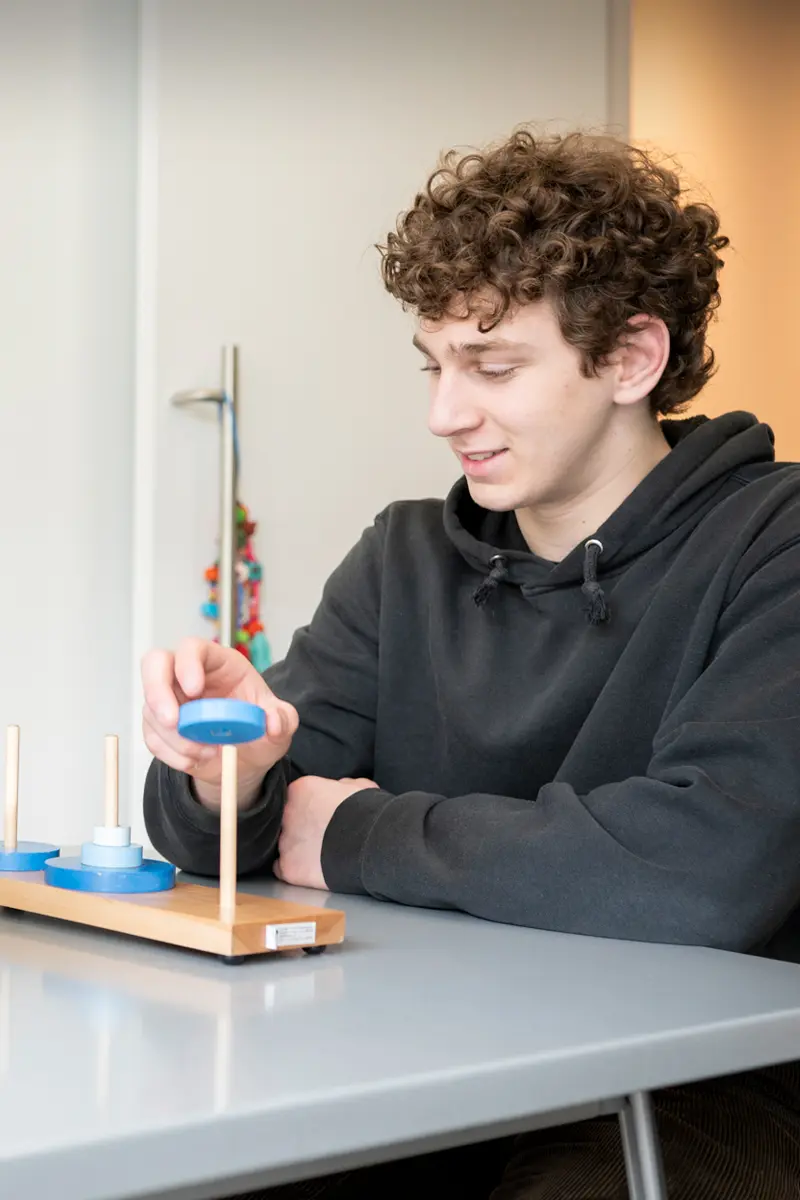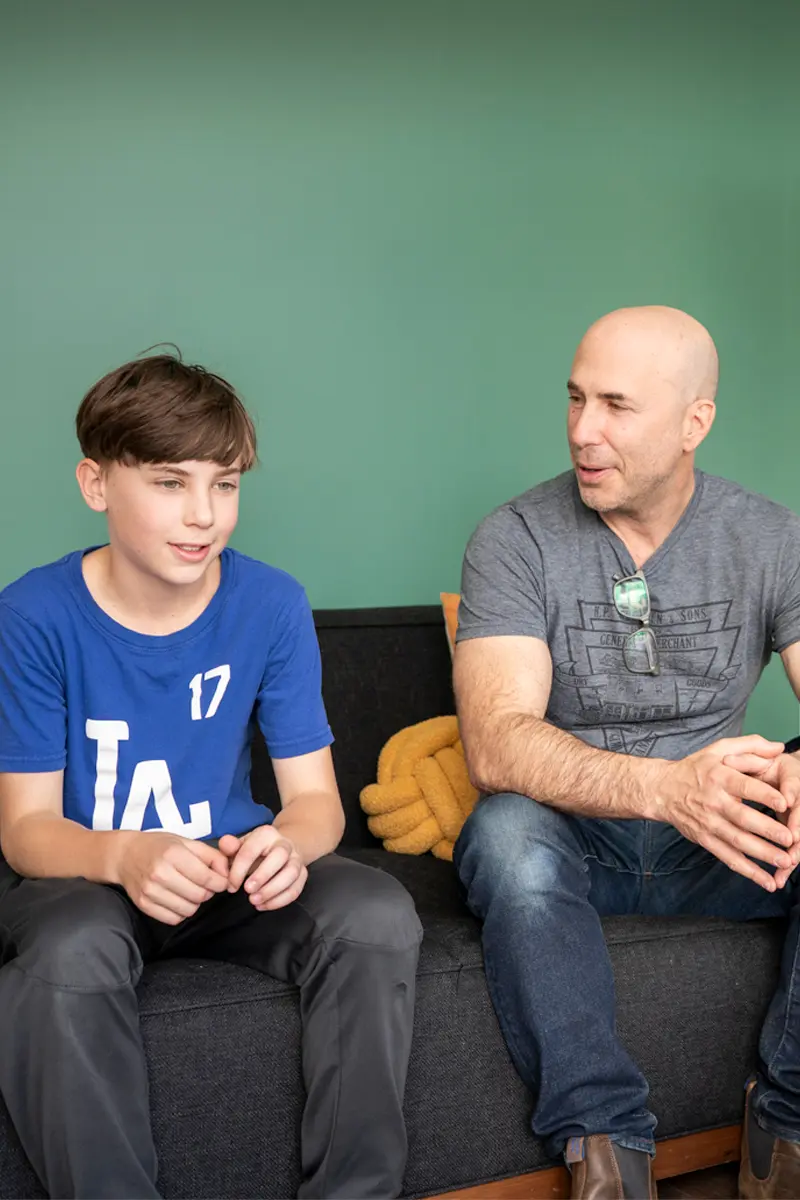What is child or adolescent psychology?
Psychology, or talk therapy, helps kids and teens manage emotional, behavioural, and mental health challenges with strategies tailored to their age, strengths, and goals. Therapy builds emotional awareness, coping skills, and daily functioning at home, school, and in relationships.
Common reasons to seek psychological help
- Persistent anxiety, worry, or fears that interfere with daily functioning
- Low mood, sadness, or signs of depression
- Emotional dysregulation or difficulty managing big emotions
- Self-esteem concerns or negative self-talk
- Social stress
- Parent-child relational stress
- Challenges related to identity, life transitions, or grief
- Symptoms that may suggest a mental health diagnosis
“Every day feels like an emotional rollercoaster for my child.”
Book with a psychologistChild and teen psychology at Red Oak
At Red Oak, we specialize in supporting ADHD, anxiety, OCD, low self-esteem, and mood difficulties. Our psychologists provide tailored strategies in a safe and supportive environment that fosters trust and understanding. We assess as needed, clarify concerns, and collaborate with families to create a personalized treatment plan. Sessions may be individual, parent–child, or a combination, depending on your child’s age and goals.
Do I need ADHD or another diagnosis to access psychology services?
No, you do not need a diagnosis (or a referral) to access services at Red Oak. Our approach is centered around meeting you and your family where you are at. We provide support that’s truly aligned with your needs, regardless of whether or not you have a formal diagnosis.
Evidence-based therapeutic frameworks
Our psychologists use proven approaches tailored to each child and teen, helping them understand emotions, build self-awareness, and strengthen social and emotional skills that support growth and well-being.
Cognitive Behaviour Therapy (CBT)
An evidence-based treatment that examines the relationship between thoughts, feelings and behaviour. CBT is typically considered a short-term treatment (ie. 6–20 sessions), and teaches strategies to change the cycle between unhelpful or distorted thoughts, negative behaviour, and problematic feelings.
CBT strategies are commonly used to treat anxiety and mood disorders, and are useful for any person wanting to change the way they think about and live life.
Dialectical Behaviour Therapy (DBT)
An evidence-based treatment that combines core elements of cognitive behaviour therapy (CBT) with acceptance and mindfulness practices. DBT skills and strategies are often taught to help individuals cope with extreme emotions and harmful behaviours, balancing the need for behaviour change with acceptance and validation.
DBT aims to teach five sets of skills: mindfulness, distress tolerance, interpersonal effectiveness, emotion regulation, and walking the middle path.
Acceptance and Commitment Therapy (ACT)
An evidence-based treatment that blends mindfulness skills and behaviour change to help people live their lives meaningfully. ACT aims to promote psychological flexibility and wellness by teaching the acceptance of negative thoughts, feelings and experience and the commitment to action and change that aligns with a an individual’s values. ACT uses metaphor and imagery to emphasize forgiveness, compassion, acceptance, personal values and living in the present moment.
Motivational Interviewing (MI)
These techniques are helpful to understand a person’s motivation for change, and their stage in the process of changing negative or unhelpful behaviour. Psychologists incorporate MI techniques to help people identify the obstacles on their path toward change, and to increase commitment and movement towards change.
Emotion Focused Therapy (EFT)
An evidence-based treatment that has roots in the science of emotion and attachment theory. EFT helps individuals gain awareness, acceptance and understanding of their emotions, teaching skills to improve relationships and the connection to the self and others.
Emotion Focused Family Therapy (EFFT) is an extension of EFT and focuses on improving family relationships.
Helping parents build connection and confidence
Parenting is a dynamic journey, and we’re here to help you navigate its ups and downs with confidence and compassion. Our psychologists provide guidance, insights, and practical tools to support your child’s emotional and developmental needs at every stage.
Psychology support can help parents:
- Better understand child development and emotional needs
- Approach challenges with compassion and clarity
- Learn effective strategies for behaviour management and boundary-setting
Parenting frameworks
Our psychologists leverage and teach a variety of parenting frameworks that best suit the situation and your parenting approach.
Our child psychology team
Our team of clinical child psychologists provide a range of specialized services to support the mental health and developmental needs of children, teens, and their parents. Their work is grounded in evidence-based practice, developmental psychology, and a neurodiversity-affirming approach.























